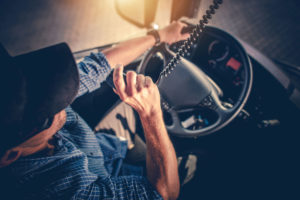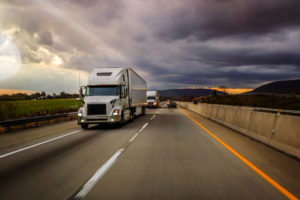By Joe Rinzel – Americans for a Modern Economy
While driverless cars have the potential to transform society, the potential side effects — from jobs to public safety — raise important questions about how they will affect American communities. This is why lawmakers around the country should look to the nation’s capital, where a unique public-private partnership is helping pave the way for making cities safer and more eco-friendly while also preparing residents to take part in a new technological workforce.
D.C. recently struck a deal with Ford that will allow the automotive giant to test self-driving cars there beginning in 2019. A key component of the partnership requires Ford to team up with a local workforce development center to train residents to become vehicle operators during the testing process. Ford also pledged to train residents for careers as auto technicians — skills that are likely to be useful in maintaining and repairing self-driving cars. From A to Z, the partnership is designed to serve the city as a whole.
While this is the first public-private partnership in D.C. related to driverless cars, the District’s Office of Public-Private Partnerships (OP3) is aimed at ensuring transformative innovations work for the entire city — be it improving street lighting, modernizing outdated library facilities or implementing clean energy initiatives.
What is critical in all these projects is that D.C. has the administrative foundation in place to ensure residents benefit equally from innovation. Beyond driverless cars and other current infrastructure projects in the works, OP3 could be used to support other beneficial technologies, such as drones, while simultaneously training residents to learn the skills necessary to participate in the modern economy.
The benefits of modern transportation technologies such as driverless cars, e-scooters and drones could be enormous. By 2050, it is estimated that driverless cars could reduce accident fatalities by roughly 90 percent, saving more than 29,000 lives per year. E-scooters could help cities reduce their carbon footprint with less greenhouse gas emissions and cleaner air. And drones could accelerate the adoption of high-speed 5G networks by enabling companies to deploy more test networks.
These 21st century technologies will also increase access to the workforce, especially for low-income and disabled residents. Affordable driverless taxi services, in particular, could be a game-changer for the 24 percent of households below the poverty line that do not own a car – especially when the D.C. Metro, like many other transit systems around the country, is in a state of disrepair. Autonomous vehicles will also make it easier for those with disabilities to get to work on their own. And beyond increasing access to the workforce, driverless cars will also create various new kinds of jobs, including everything from vehicle software engineering to autonomous vehicle maintenance. In fact, this job creation is already starting: in 2017, driverless job listings increased 27 percent.
It might be inevitable that new technologies produce fear of change, especially when it comes to the nature of work. But the answer cannot be to block innovation that promises to bring so many benefits. D.C. is showing how cities can leverage public-private partnerships to support and promote 21st technological advances that work for everyone.
Joe Rinzel is a spokesperson for Americans for a Modern Economy, a consumer advocacy group focused on modernizing regulations and laws governing the U.S. economy.

